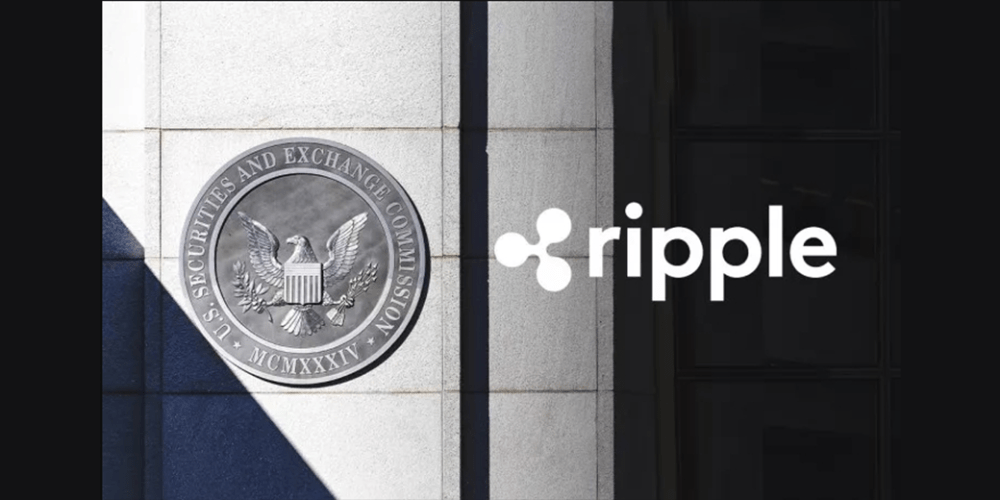Ripple and SEC Near Settlement as Legal Battle Winds Down
13.03.2025 8:00 2 min. read Kosta Gushterov
The legal battle between Ripple and the U.S. Securities and Exchange Commission (SEC) appears to be nearing its conclusion, with reports suggesting that both parties are finalizing the terms of a resolution.
The lawsuit, which dates back to 2020, accused Ripple of selling XRP without registering it as a security. Although a 2024 ruling granted Ripple a partial victory, the company was still ordered to pay a $125 million fine.
According to Fox Business journalist Eleanor Terrett, negotiations have prolonged the finalization of the case, as both sides work through specific details—particularly regarding the financial penalty. Citing sources familiar with the discussions, Terrett indicated that Ripple’s legal team is pushing for more favorable terms.
A key point of contention revolves around whether Ripple should accept the previous court ruling, which not only imposed the hefty fine but also prohibited the company from selling XRP to institutional investors.
Reportedly, Ripple’s argument is that if the SEC is shifting its stance on crypto enforcement under new leadership, firms previously targeted should not be held to past penalties. Agreeing to the court’s decision as it stands might imply an admission of wrongdoing, even as the SEC itself appears to be reassessing its regulatory approach.
Given the unprecedented nature of the situation, the resolution process has taken longer than expected. Legal analyst Jeremy Hogan, who has closely followed the case, recently speculated that a final decision could arrive by May.
Forget About Network Congestion Problems With Solaxy
Solaxy ($SOLX) is revolutionizing blockchain technology by offering the first Layer-2 solution on Solana. This project significantly improves speed and reduces transaction fees, solving network congestion problems.
Solaxy’s advanced rollup architecture shows strong potential to optimize transaction speeds and reduce congestion-related inefficiencies on Solana. The project’s approach reduces congestion and ensures smooth execution, even during peak activity. For traders, this means faster and more reliable transactions, preventing failed swaps.
Beyond improving transaction efficiency, Solaxy is expanding interoperability between Solana and Ethereum. The $SOLX token functions as a multi-chain asset, allowing users to engage across both ecosystems. This provides access to Ethereum’s liquidity while benefiting from Solana’s speed and cost efficiency.
-
1
Key U.S. Events to Watch This Week That Could Impact Crypto
30.06.2025 11:00 2 min. read -
2
Here Is How Your Crypto Portfolio Should Look Like According to Investment Manager
30.06.2025 10:00 2 min. read -
3
SoFi Returns to Crypto with Trading, Staking, and Blockchain Transfers
27.06.2025 8:00 1 min. read -
4
GENIUS Act Could Reshape Legal Battle over TerraUSD and LUNA Tokens
30.06.2025 9:00 1 min. read -
5
Here is How to Read the Crypto Fear and Greed Index
14.07.2025 15:00 3 min. read
Grayscale Confidentially Files for New SEC-registered Offering Amid Growing Crypto Market demand
Grayscale Investments announced today that it has confidentially submitted a draft registration statement on Form S-1 to the U.S.
Here is How to Read the Crypto Fear and Greed Index
In the volatile world of cryptocurrency, investor psychology is one of the most powerful forces behind price movement.
Bank of England Governor Warns Against Stablecoins, Backs Tokenized Deposits Instead
Bank of England Governor Andrew Bailey has voiced strong concerns about the rising push for stablecoin adoption, calling on banks to steer clear of issuing their own digital currencies.
Czech National Bank Enters Crypto Sector with $18M Coinbase Investment
The Czech National Bank (CNB) has entered the crypto sector with a $18 million investment in Coinbase, purchasing 51,732 shares in Q2 2025, according to a U.S. SEC filing.
-
1
Key U.S. Events to Watch This Week That Could Impact Crypto
30.06.2025 11:00 2 min. read -
2
Here Is How Your Crypto Portfolio Should Look Like According to Investment Manager
30.06.2025 10:00 2 min. read -
3
SoFi Returns to Crypto with Trading, Staking, and Blockchain Transfers
27.06.2025 8:00 1 min. read -
4
GENIUS Act Could Reshape Legal Battle over TerraUSD and LUNA Tokens
30.06.2025 9:00 1 min. read -
5
Here is How to Read the Crypto Fear and Greed Index
14.07.2025 15:00 3 min. read



